Introduction
When it comes to choosing a canine companion, many families prioritize finding the friendliest dog breeds that get along well with everyone, from small children to elderly relatives and even other pets. The most friendly dog breeds often combine an easygoing temperament with natural sociability, making them perfect additions to households of all types.
In this comprehensive guide, we’ll explore six exceptional dog breeds known for their friendly dispositions and relatively quiet nature. These affectionate dog breeds not only offer unwavering companionship but also tend to be less vocal than other canines, making them ideal for those seeking peace and harmony in their homes.
Whether you’re a first-time pet parent or an experienced dog owner looking for your next family member, these loyal and friendly dog breeds deserve your consideration. Each brings unique qualities while sharing the common traits of being extraordinarily friendly, gentle, and remarkably quiet compared to their more talkative counterparts.
What Makes a Dog Breed “Friendly”?
Before diving into our list of the friendliest dog breeds, it’s important to understand what truly constitutes a friendly dog. While individual personality always varies, certain breeds consistently display characteristics that earn them reputation as being among the most friendly dog breeds:
- Natural sociability: The friendliest dog breeds typically enjoy meeting new people and animals
- Gentle temperament: They approach interactions with calmness rather than overexcitement
- Adaptability: These easygoing dog breeds adjust well to different environments and situations
- Trainability: Most friendly breeds are receptive to training, making them well-mannered companions
- Low aggression: The best family dog breeds rarely show aggressive tendencies
- Tolerance: Friendly dogs tend to be patient with handling, especially important for households with children
These foundational traits combine to create the perfect recipe for family-friendly companions. Now, let’s explore our top picks for the friendliest dog breeds that rarely bark and love everyone they meet.
1. Golden Retriever: The Quintessential Friendly Companion
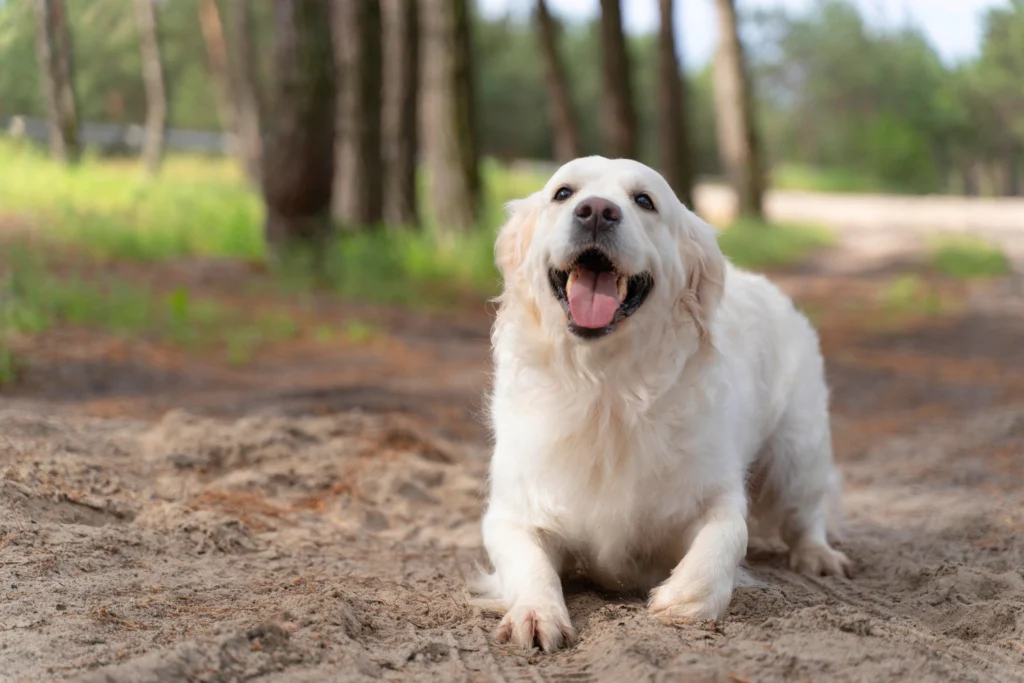
When discussions about the friendliest dog breeds arise, Golden Retrievers almost always claim a top spot—and for good reason. Originally bred as hunting companions, these magnificent dogs have evolved into one of the most friendly dog breeds with an almost legendary reputation for their gentle nature.
Why Golden Retrievers Are Among the Friendliest Dog Breeds
Golden Retrievers exemplify what it means to be an affectionate dog breed. Their friendly disposition is practically written into their DNA, making them natural companions who thrive on human interaction. These playful dog breeds maintain a puppy-like enthusiasm for life well into adulthood, always ready for the next adventure or cuddle session.
As one of the best dogs for families, Goldens demonstrate remarkable patience with children of all ages. Their gentle approach to play and natural protective instincts make them ideal guardians for little ones without being overbearing or aggressive.
Despite their exuberant personalities, Golden Retrievers rarely resort to excessive barking. They tend to vocalize primarily when necessary—to alert their families to visitors or unusual situations—but otherwise maintain a pleasantly quiet demeanor.
Living With a Golden Retriever
As large, friendly dog breeds go, Goldens require moderate exercise—typically about 30-60 minutes daily of walking, playing fetch, or swimming. Their intelligence makes them highly trainable, and they excel in obedience, agility, and service work.
Their gorgeous golden coats do require regular maintenance with weekly brushing to prevent matting and manage shedding. Health-wise, prospective owners should be aware of potential issues including hip dysplasia, certain cancers, and heart conditions, which responsible breeders screen for.
With proper care and training, a Golden Retriever can be expected to live 10-12 years, providing a decade or more of unwavering friendship and loyalty. For those seeking one of the most friendly dog breeds that combines gentleness with minimal barking, the Golden Retriever stands as an excellent choice.
2. Cavalier King Charles Spaniel: Small Package, Big Heart
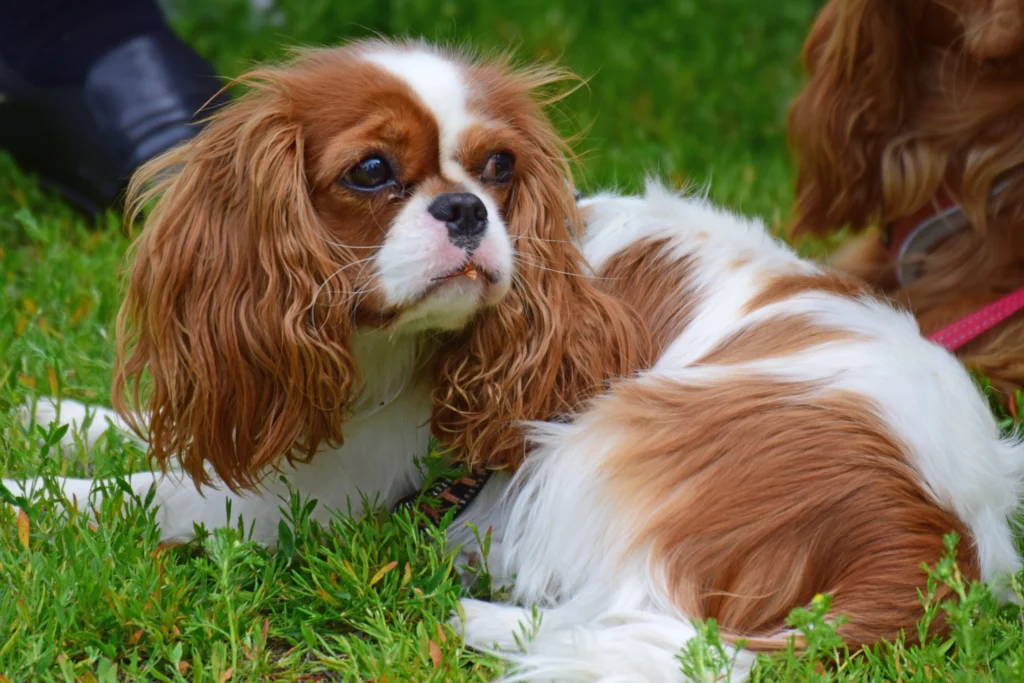
When it comes to friendly small dog breeds, the Cavalier King Charles Spaniel reigns supreme. These compact companions pack an enormous amount of affection into their small frames, making them one of the friendliest dog breeds for apartments and smaller living spaces.
The Cavalier’s Friendly Disposition
Cavaliers were bred specifically to be companions to royalty, and their gentle, affectionate nature reflects this noble purpose. Unlike some small breeds that can be high-strung or yappy, Cavaliers are among the most friendly dog breeds regardless of size, approaching life with a quiet confidence and inherent sweetness.
Their adaptable temperament means they’re equally content snuggling on the couch or accompanying their families on moderate adventures. As one of the most affectionate dog breeds, Cavaliers form deep bonds with their human companions and are known to be especially attentive and intuitive to their owners’ emotions.
Perfect Family Companions
As family pets, Cavaliers excel with children and make wonderful companions for seniors as well. Their patient, tolerant attitude places them firmly among the best family dog breeds, particularly for those seeking a smaller canine friend. They tend to get along beautifully with other pets too, rarely displaying aggression or territorial behavior.
Perhaps most notably for those seeking quieter companions, Cavaliers are among the least vocal of all dog breeds. While they may occasionally bark to alert their family to visitors, they rarely engage in the persistent barking that can characterize other small breeds.
Care Considerations
These friendly small dog breeds require moderate exercise—typically a daily walk and some playtime will suffice. Their beautiful, silky coats need regular brushing to prevent tangles, and their long, floppy ears should be checked weekly to prevent infections.
Potential owners should be aware that the breed can be prone to certain health conditions, including heart issues, eye problems, and syringomyelia (a neurological condition). Working with responsible breeders who conduct appropriate health testing is essential.
With proper care, these loyal and friendly dog breeds typically live 9-14 years, offering a decade or more of gentle companionship and affection. For those seeking a smaller dog with a big heart and minimal barking tendencies, the Cavalier King Charles Spaniel represents one of the friendliest dog breeds available.
3. Labrador Retriever: America’s Favorite Friendly Dog
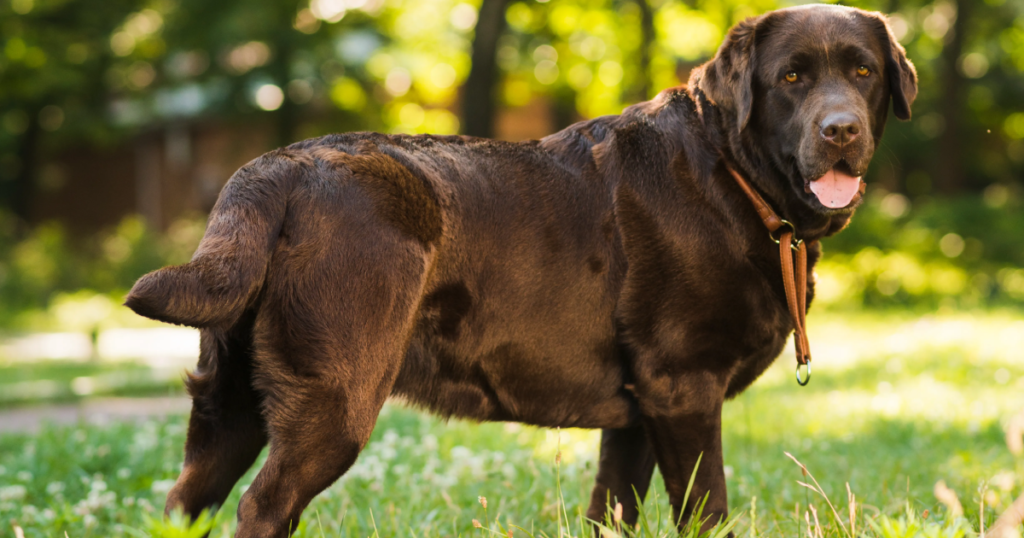
Consistently ranking as America’s most popular dog, the Labrador Retriever has earned its place among the friendliest dog breeds through decades of reliable, gentle companionship. These versatile, good-natured dogs exemplify what makes friendly large dog breeds so appealing to families across the country.
The Lab’s Legendary Friendly Nature
Labs possess a unique combination of enthusiasm and self-control that places them firmly among the most friendly dog breeds. Their natural sociability extends to practically everyone they meet—family members, strangers, other dogs, and even cats. This universal friendliness is part of what makes them exceptional family companions.
Originally bred as working retrievers, Labs maintain their eager-to-please attitude in modern family settings. Their intelligence and trainability contribute to their reputation as both the best family dog breeds and as service animals, therapy dogs, and search-and-rescue workers.
Family-Friendly Characteristics
As one of the quintessential friendly dog breeds good with kids, Labs demonstrate remarkable patience with children of all ages. Their sturdy build means they can withstand enthusiastic play from youngsters, while their gentle mouth (developed for carrying game birds without damaging them) makes them naturally careful during play.
While Labs are protective of their families, they rarely show aggression toward people, instead serving as friendly watchdogs who may alert with a bark but typically greet visitors with wagging tails rather than suspicion.
Living With a Labrador
These friendly large dog breeds require regular exercise—about 60-90 minutes daily of walking, swimming, or playing fetch helps maintain their physical and mental health. Without adequate activity, their exuberant energy can sometimes translate into destructive behaviors.
Labs have short, dense coats that shed moderately year-round and more heavily during seasonal changes. Weekly brushing helps manage shedding, and occasional baths keep them clean without stripping protective oils from their water-resistant coats.
Health considerations include potential for hip and elbow dysplasia, obesity (Labs love food!), and certain eye conditions. Responsible breeding practices have helped reduce these concerns in well-bred lines.
With proper care, these loyal and friendly dog breeds typically live 10-12 years. For families seeking an active, sociable companion who combines the best qualities of friendly dog breeds with minimal problematic barking, the Labrador Retriever remains an outstanding choice.
4. Beagle: The Friendly, Merry Little Hound

With their expressive eyes and perpetually wagging tails, Beagles have charmed their way into homes worldwide as one of the friendliest dog breeds in the small-to-medium size range. These merry little hounds combine a cheerful disposition with remarkable friendliness toward nearly everyone they meet.
Beagle Temperament and Sociability
Beagles were bred to hunt in packs, which has instilled in them a deeply sociable nature that places them among the most friendly dog breeds. They genuinely enjoy the company of humans and other dogs alike, approaching life with curiosity and enthusiasm rather than suspicion.
Their good-natured temperament makes them excellent companions for families of all types. While they do have a distinctive howl and can be more vocal than some breeds on our list, well-trained Beagles typically reserve their vocalizations for appropriate times rather than engaging in nuisance barking.
Perfect for Active Families
As one of the friendliest dog breeds that maintains a playful spirit throughout life, Beagles make wonderful companions for active families. Their moderate size—typically 13-15 inches tall and weighing between 20-30 pounds—makes them substantial enough for robust play yet small enough to be manageable in various living situations.
Beagles are particularly known as friendly dog breeds good with kids, demonstrating patience and enjoying the high-energy play that children offer. Their sturdy build and good-natured temperament make them resilient playmates who rarely become snappish or irritable.
Care and Considerations
These easygoing dog breeds do require regular exercise to prevent boredom and potential behavioral issues. Their hunting background means they have considerable energy and stamina, typically needing at least 60 minutes of activity daily, ideally including opportunities to explore interesting scents.
Beagles have short coats that require minimal grooming—weekly brushing is usually sufficient to control shedding. Their long, floppy ears should be checked regularly for signs of infection, a common concern in the breed.
Health considerations include potential for obesity (Beagles love food and will overeat if allowed), ear infections, and certain eye conditions. With proper care, these friendly dog breeds for first-time owners typically live 12-15 years, offering over a decade of merry companionship.
5. Newfoundland: The Gentle Giant
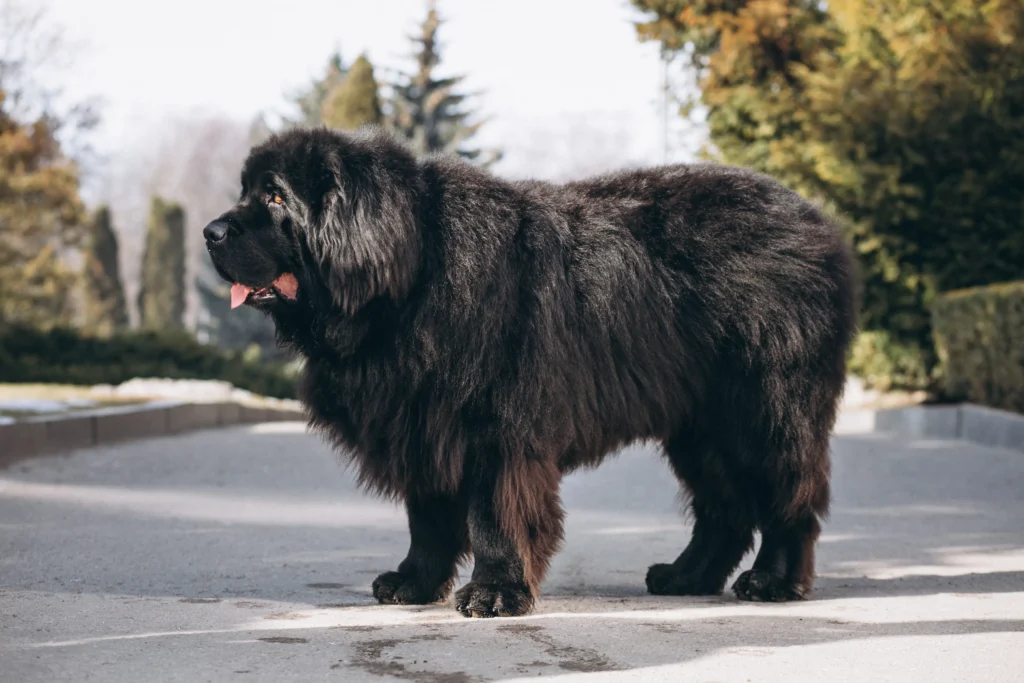
When discussing friendly large dog breeds, the Newfoundland stands out as particularly special. These massive dogs—often weighing between 100-150 pounds—combine impressive size with one of the gentlest temperaments in the canine world, earning them a well-deserved reputation among the friendliest dog breeds.
Newfoundland Temperament: Sweet-Natured and Patient
Newfoundlands are often described as “sweet-natured” and “patient”—qualities that have made them beloved family companions for generations. Originally bred as working dogs for fishermen in Newfoundland, Canada, these dogs developed a unique combination of strength, courage, and gentleness that continues to define the breed today.
Their natural protectiveness toward children has earned them the nickname “nanny dogs,” placing them firmly among the best family dog breeds for households with kids. Despite their enormous size, they demonstrate remarkable gentleness and patience with little ones, seemingly understanding their own strength and moderating it accordingly.
Quiet and Dignified Companions
Unlike some large breeds that can be vocal, Newfoundlands are typically quiet dogs who bark only when necessary. Their dignified approach to life means they’re rarely excitable or boisterous indoors, preferring to maintain a calm, watchful presence over their families.
As water dogs, Newfoundlands have natural swimming abilities and have been known to rescue drowning victims—a testament to both their physical capabilities and their inherent desire to help others. This protective instinct makes them not only among the friendliest dog breeds but also among the most heroic.
Living With a Newfoundland
These gentle dog breeds do require space appropriate to their size, making them better suited to homes with at least some outdoor area. Despite their size, they’re surprisingly adaptable and can do well in relatively calm households without enormous yards, provided they receive appropriate exercise.
Their thick, water-resistant double coats require regular grooming, typically 2-3 times weekly, with more frequent brushing during seasonal shedding periods. Drooling is common in the breed—something potential owners should be prepared for.
Health considerations include potential for hip and elbow dysplasia, heart conditions, and bloat. With proper care, these calm and friendly dog breeds typically live 8-10 years—shorter than smaller breeds but still offering nearly a decade of devoted companionship.
6. Bichon Frise: The Cheerful Powder Puff
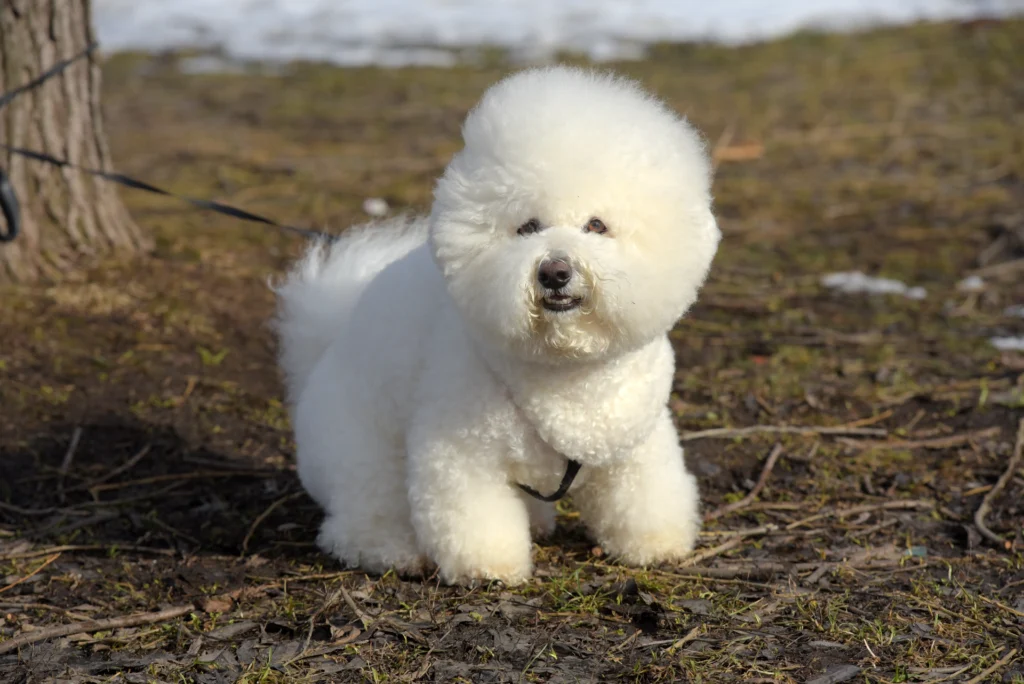
Rounding out our list of the friendliest dog breeds is the charming Bichon Frise—a small, powder-puff companion whose name literally means “curly lap dog.” These delightful little dogs combine the best qualities of friendly small dog breeds with a remarkably quiet demeanor compared to many other small breeds.
The Bichon’s Friendly, Gentle Nature
Bichons are renowned for their cheerful, friendly disposition that seems to extend to everyone they meet. Unlike some small breeds that may be reserved with strangers or protective of their owners, Bichons typically approach new people with wagging tails and happy expressions, firmly establishing them among the most friendly dog breeds.
Their gentle temperament and natural affinity for people of all ages make them excellent companions for diverse households. As one of the friendliest dog breeds that remain playful well into adulthood, Bichons bring joy and laughter to their families through their merry antics and clown-like personalities.
Excellent for Various Living Situations
Weighing typically between 7-12 pounds, these friendly small dog breeds adapt well to various living situations, including apartments and smaller homes. Their exercise needs are moderate—daily walks and some playtime usually suffice—making them suitable for less active owners or those with limited outdoor space.
Bichons are considered among the best dogs for families with allergies, as their curly coat is minimal-shedding. While no dog is truly hypoallergenic, Bichons produce less dander than many breeds, often making them tolerable for people with mild to moderate allergies.
Perhaps most notably for those seeking quieter companions, Bichons rarely engage in problem barking. While they may alert their owners to visitors, they generally don’t bark excessively without cause—a trait that sets them apart from many other small breeds.
Care Considerations
These affectionate dog breeds do require regular grooming to maintain their distinctive appearance. Professional grooming every 4-6 weeks is recommended, with regular brushing at home to prevent mats and tangles in their curly coats.
Bichons are generally healthy dogs, though they can be prone to certain conditions including allergies, bladder problems, and patellar luxation. Their expected lifespan is 14-15 years, offering a long period of companionship for those who welcome these friendly dogs for first-time owners into their homes.
Choosing the Right Friendly Dog Breed for Your Family
While all six breeds we’ve highlighted rank among the friendliest dog breeds, selecting the perfect canine companion requires consideration of various factors beyond just friendliness. Here are some important considerations when choosing among these gentle dog breeds:
Lifestyle Compatibility
- Activity level: Match the dog’s exercise needs with your family’s lifestyle
- Space limitations: Consider whether your living situation accommodates larger friendly dog breeds
- Time commitment: All dogs require time for training, exercise, and companionship
- Grooming requirements: Some friendly breeds require significant grooming time and expense
Family Composition
- Children’s ages: While all these breeds are good with kids, some may be better suited to households with older versus younger children
- Other pets: Consider how your new dog will integrate with existing pets
- Allergies: Some family members may do better with minimal-shedding breeds
Long-term Commitment
Remember that these loyal and friendly dog breeds will be part of your family for potentially 10-15 years. Consider:
- Financial responsibility: Food, veterinary care, grooming, and supplies
- Life changes: How the dog will adapt to potential moves or family changes
- Senior care: As friendly breeds age, they may require additional support and medical care
Adoption Considerations
We strongly encourage considering adoption when looking for friendly dog breeds. Many wonderful dogs of the breeds mentioned—or mixed breeds with similar temperaments—can be found through:
Mixed-breed dogs often combine the best traits of multiple friendly dog breeds and can make equally wonderful companions, often with fewer health concerns than purebred dogs.
Training Tips for the Friendliest Dog Breeds
Even the most friendly dog breeds benefit from proper training to help them become their best selves. Here are some strategies that work particularly well for these sociable, people-oriented dogs:
Positive Reinforcement
The friendliest dog breeds respond exceptionally well to positive reinforcement techniques. Using treats, praise, and play as rewards helps strengthen desired behaviors while building the bond between you and your dog. Harsh or punitive training methods are unnecessary and counter-productive with these naturally gentle dog breeds.
Socialization
While these breeds are predisposed to friendliness, early and ongoing socialization helps ensure they develop into well-adjusted adults:
- Puppy socialization: Introduce puppies to various people, animals, and environments between 8-16 weeks
- Ongoing experiences: Continue exposing your dog to new situations throughout life
- Positive associations: Ensure socialization experiences are positive and not overwhelming
Basic Commands
All dogs benefit from learning basic commands that keep them safe and make them pleasant companions:
- Sit, stay, come: Essential for safety and control
- Leash manners: Even friendly dog breeds need to learn appropriate leash behavior
- Leave it/drop it: Prevents dangerous ingestion and resource guarding
Common Health Considerations for Friendly Breeds
While the friendliest dog breeds tend to be generally healthy, each of the breeds discussed has potential health concerns worth understanding:
Size-Related Issues
- Large breeds: Hip/elbow dysplasia, bloat, joint issues
- Small breeds: Dental problems, patellar luxation, tracheal collapse
Breed-Specific Concerns
- Golden and Labrador Retrievers: Cancer, hip dysplasia, eye conditions
- Cavalier King Charles Spaniels: Heart conditions, syringomyelia
- Beagles: Obesity, ear infections, epilepsy
- Newfoundlands: Heart conditions, hip dysplasia, bloat
- Bichon Frise: Allergies, bladder stones, dental disease
Regular veterinary care, appropriate diet, proper exercise, and working with responsible breeders who conduct health testing can all help minimize these concerns.
Conclusion: Finding Your Perfect Friendly Companion
The friendliest dog breeds offer something truly special—the capacity to bring joy, companionship, and unconditional love to our lives. Whether you prefer friendly large dog breeds like the Newfoundland or playful small ones like the Bichon Frise, there’s a perfect canine companion waiting to become part of your family.
The six breeds we’ve highlighted—Golden Retrievers, Cavalier King Charles Spaniels, Labrador Retrievers, Beagles, Newfoundlands, and Bichon Frises—represent some of the most friendly dog breeds available, combining sociable temperaments with relatively quiet dispositions.
When choosing among these friendly dog-breeds for first-time owners or experienced dog parents, remember that individual personality varies even within breeds. Meeting potential dogs in person, whether through breeders, rescues, or shelters, remains the best way to find your perfect match.
With proper care, training, and love, these gentle dog breeds will reward you with years of faithful companionship and the special joy that only comes from sharing your life with one of the friendliest dog-breeds available.
Additional Resources
For more information about dog breeds, training, and care, check out these trusted resources:
- American Kennel Club – Comprehensive breed information
- The Humane Society – Adoption and care resources
- Association of Professional Dog Trainers – Find qualified trainers
- PetsMemes Dog Care Guides – Our comprehensive collection of dog care information
- PetsMemes Dog Training Tips – Practical training advice for friendly breeds
- PetsMemes Dog Breed Comparison Tool – Compare the friendliest dog breeds
Have you shared your life with one of these friendly dog breeds? We’d love to hear about your experiences in the comments below!
About the Author: This article was carefully researched and written by the pet experts at PetsMemes, dedicated to providing accurate, helpful information for pet owners seeking the perfect canine companions.
Last Updated: April 9, 2025





Leave a Comment